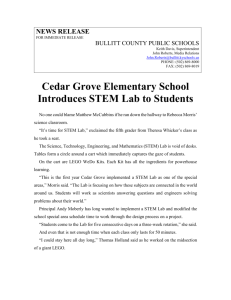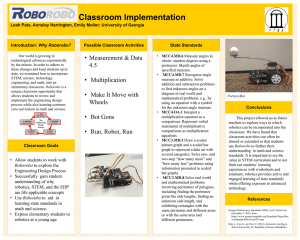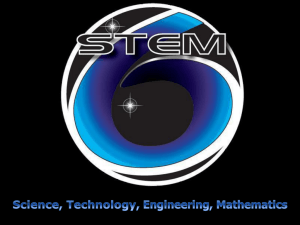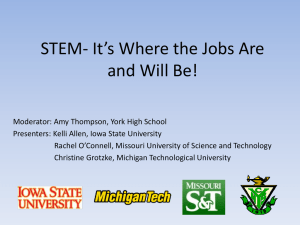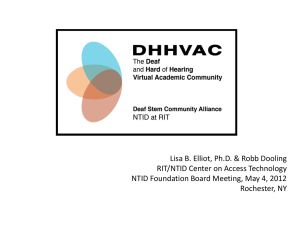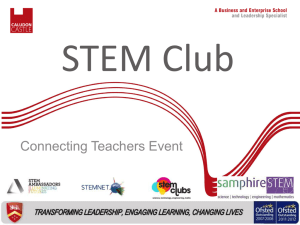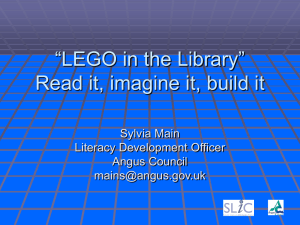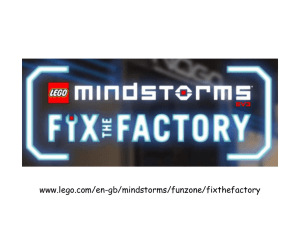STEM - WordPress.com
advertisement
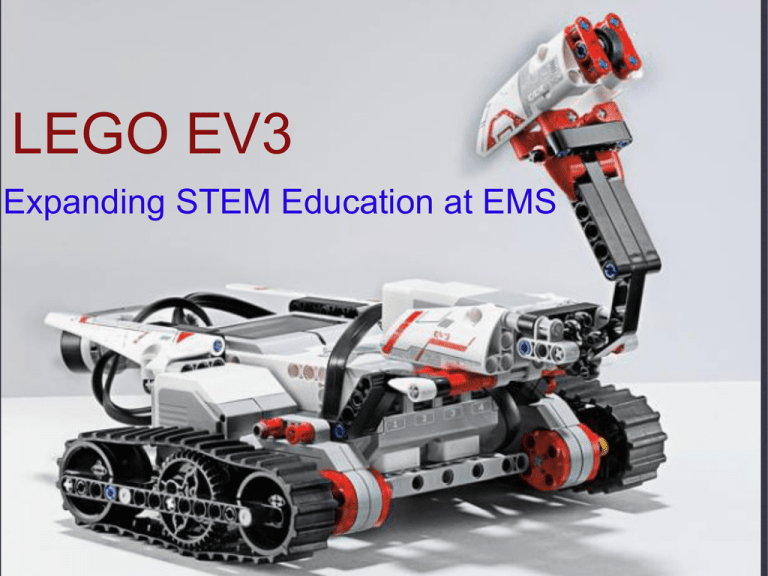
LEGO EV3 Expanding STEM Education at EMS STEM: The acronym STEM stands for science, technology, engineering, and math. However, there is some disagreement with regard to precisely which degrees and occupations fall into the category of STEM. Some consider STEM to include life sciences (except medical sciences), physical sciences, mathematics and statistics, computing, and engineering. QuickTime™ and a decompressor are needed to see this picture. What is STEM Education? Vision: Why We Teach STEM STEM education teaches our students to think critically, problem solve, and develop a student’s interest in engineering concepts. According to a recent report by the US Congress Joint Economic Committee, STEM skilled employment opportunities will out-pace non-STEM employment opportunities in our future economy. (April 2012) During the recent Great Recession, most STEM related industries were deemed recession proof. Yet, with this evidence at hand America continues to see a decline in STEM related degree recipients year after year. We are compelled to help prepare our young students to compete for future career opportunities that will be available as we venture further into the 21st Century. How STEM is Infused at EMS Currently, we offer STEM education topics throughout our science curriculum. (7th grade force and motion study, rockets.) All students take one trimester of STEM per year. (i.e. 6th grade earthquake structures, 7th grade roller coasters, and most 8th grade students are enrolled in bridge construction) We offer Programming and Design, an 8th grade elective, that includes Scratch basic video game design and a basic, first generation, robotics unit. So......What else can Wyckoff Schools do to enhance STEM education? THE ANSWER:............ ROBOTICS QuickTime™ and a decompressor are needed to see this picture. PROJECT Lego EV3 Mindstorms Teaching STEM through robotics DATE 2-5-13 CLIENT Why is LEGO EV3 the Answer? LEGO Robotics have a long history in designing robots that help students explore engineering concepts. Beginning in 1994, and in partnership with MIT and Tufts University, Lego began developing educational tools that took advantage of visual programing environments. The product is LEGO Mindstorms programmable robots. Students can build, program, test, and control robots that use multiple motors, light and touch sensors. The new EV3 series includes more advanced sensors, easier program environments and the ability to control each creation using app based technology. (iPhone or iPad) The LEGO Curriculum • Key Learning Values: Learn and use engineering design process skills Understand and use mathematical skills and concepts, such as proportions and ratios, graphing data, and multi-digit computation Apply knowledge of science concepts, such as speed and power, motion and stability, and forces and interactions Understand cross-cutting concepts, such as systems, patterns, structure and function, and logical thinking Understand the core concepts of technology Understand the role of troubleshooting, invention and innovation, and experimentation in problem solving Plan and manage activities to develop a solution or complete a project Course of Study Robotics I - Basic understanding of programming interface and getting the EV3 basic robots moving Robotics II - Engineering Design Challenge: Will use portions of Lego’s 30 designed projects curriculum to build a myriad of robot designs and functions Robotics III (extended cycle) - Problem Solving Challenge: Students will use the expansion pacts to design robots that will solve real-life problems Why we need your help! Costs of developing our program: 72 Core Units with Chargers = $23,252 24 Expansion Packs = $2,278 LEGO Curriculum = $285 Mindstorms Software = $380 EV3 Training for 10 teachers = $2,000 Curriculum Writing = $2,000 Projected Total Cost = $30,195 QuickTime™ and a decompressor are needed to see this picture. EV3 Unleashed CES 2013 Thank you to our team: Loris Chen, Alicia Kettler, Marc DeBlock, and Pat Lee Questions?

